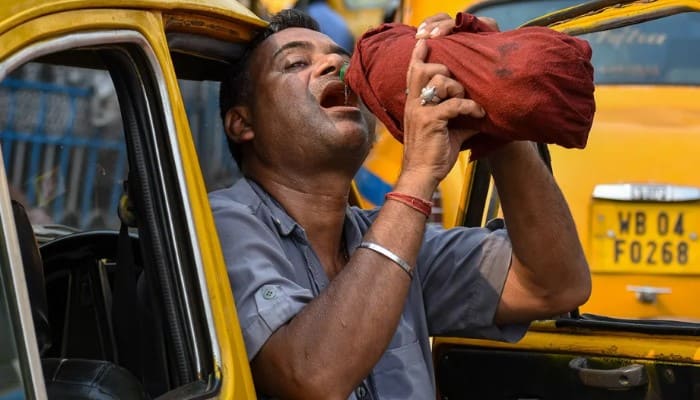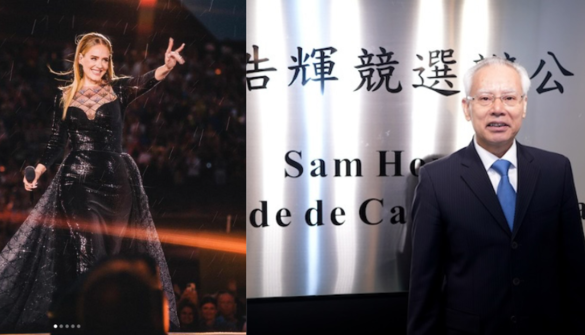
Thailand Dissolves Parliament, Setting Up May Elections
Lower chamber paralyzed by political party maneuvers in recent months
BANGKOK — King Maha Vajiralongkorn of Thailand on Monday endorsed the dissolution of the country’s House of Representatives, effectively kicking off the campaign season ahead of polls in May.
The Election Commission will later this week announce the poll date, which it tentatively scheduled back in September for May 7. The constitution prescribes an election to take place 45 to 60 days from the closing of parliament. Thai elections are customarily held on Sundays.
By dissolving the house early, Prime Minister Prayuth Chan-ocha has given parliamentarians more time to switch parties. If the parliamentary term had ended as scheduled on Thursday, candidates would have needed to be members of a party for at least 90 days before the election. That period is shortened to 30 days in case of dissolution, according to the constitution.
Prayuth briefly spoke to news media outside Government House on Monday afternoon following the Royal Gazette’s publication of the dissolution decree. The prime minister’s last business was a meeting with the Board of Investments to approve incentives for projects worth 56.6 billion baht ($1.64 billion).
“From now on, I will go on to the election campaign,” he said. “I want to thank everyone for their cooperation that we were able to deliver during our government.”
Political parties have been active on the campaign trail for months, designating their standard-bearers and announcing policy platforms. Prayuth joined the newly formed United Thai Nation Party in January in a bid to govern for two more years until he hits an eight-year term limit.
The retired army general became prime minister in 2014 after leading a military coup, but the Constitutional Court ruled in September that his term count began in 2017 when the current constitution came into force.
Prayuth ran in 2019 as a guest candidate of the ruling Palang Pracharath Party, which has now put forward Deputy Prime Minister Prawit Wongsuwan as its nominee. Two other members of the ruling coalition, Health Minister Anutin Charnvirakul and Commerce Minister Jurin Laksanawisit, are the expected nominees for the Bhumjaithai and Democrat Parties, respectively.
The opposition Pheu Thai party continues to top opinion polls. It garnered 49.75% support in the latest quarterly survey conducted by the National Institute of Development Administration — an increase of 6.8 percentage points from December. Its nominee, Paetongtarn Shinawatra, daughter of former Prime Minister Thaksin Shinawatra, leads other prime minister candidates at 38.2%.
Another opposition leader, Pita Limjaroenrat of the Move Forward Party, held second place at 15.75%. Prayuth sits in third with 15.65%.
Politicians like Prayuth and Paetongtarn have spent most weekends this year campaigning outside Bangkok in key regions, particularly in the northern provinces of Nakhon Ratchasima and Chiang Mai.
The Election Commission last week announced that it had finished drawing district lines for 400 seats that are up for grabs. Thai voters will receive two ballots — one for a constituency seat and another for their favored party. The second ballot will determine the remaining 100 House seats.
The upper chamber, which consists of 250 senators appointed by the government, will stay in place through the election and play a key role in selecting the next prime minister.
The dissolution comes after months of parliamentary paralysis as members switched parties, with the last session taking place on Feb. 28. Forty ministers defected to Bhumjaithai, the second-largest party in the ruling coalition, followed by dozens more flooding to UTN after Prayuth’s registration.
Last week, the cabinet agenda included proposals to raise salaries and remuneration for provincial and local officials, infrastructure projects, low-income housing for communities along rail developments, and national security for the southern border provinces.
Article Source
https://asia.nikkei.com/Politics/Thai-election/Thailand-s-largest-opposition-faces-dissolution-fears-after-election
Other Interesting Articles
 Large Swathes of Asia are Sweltering Through Record Breaking Temperatures Apr 21, 2023
Large Swathes of Asia are Sweltering Through Record Breaking Temperatures Apr 21, 2023











